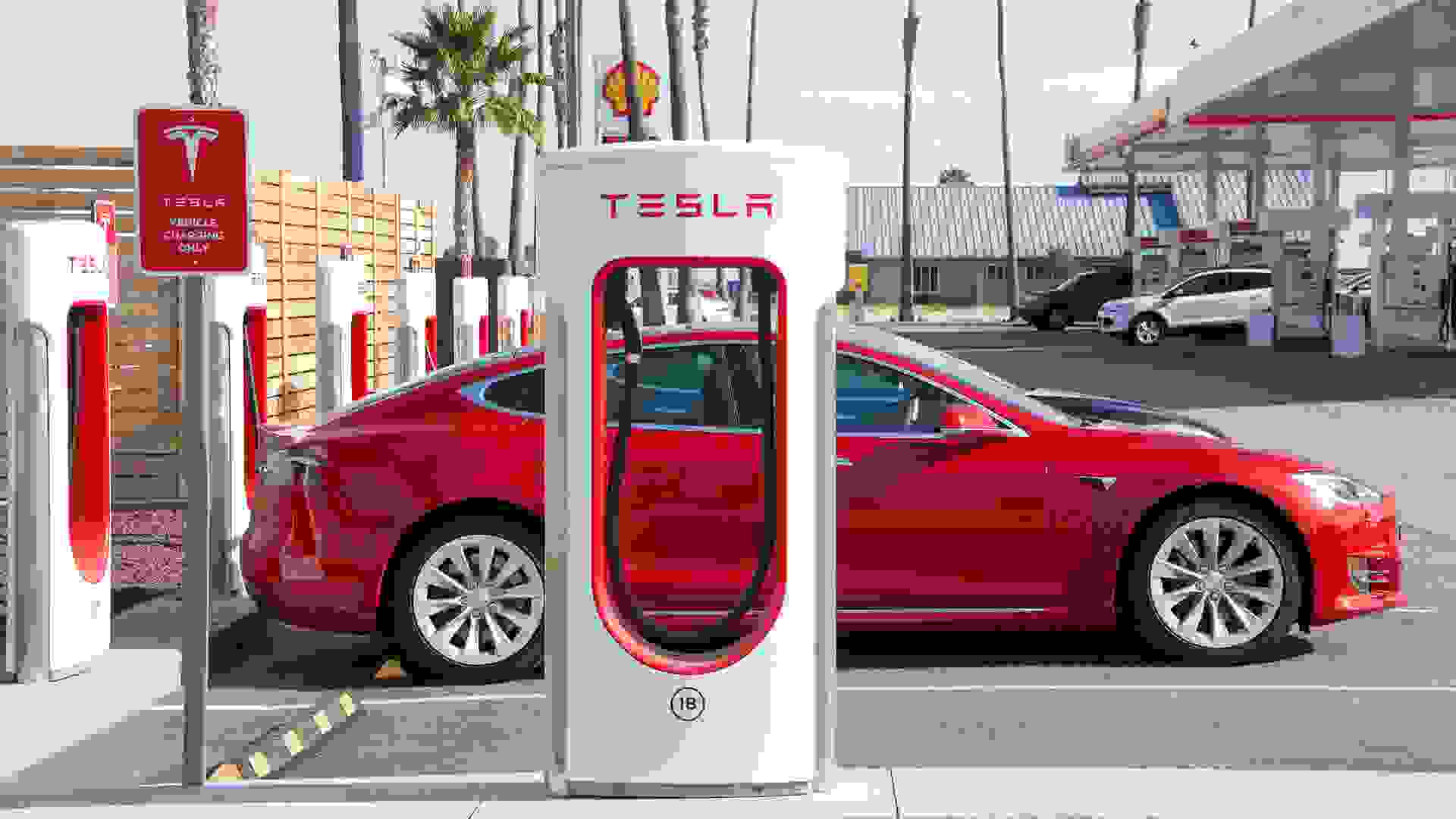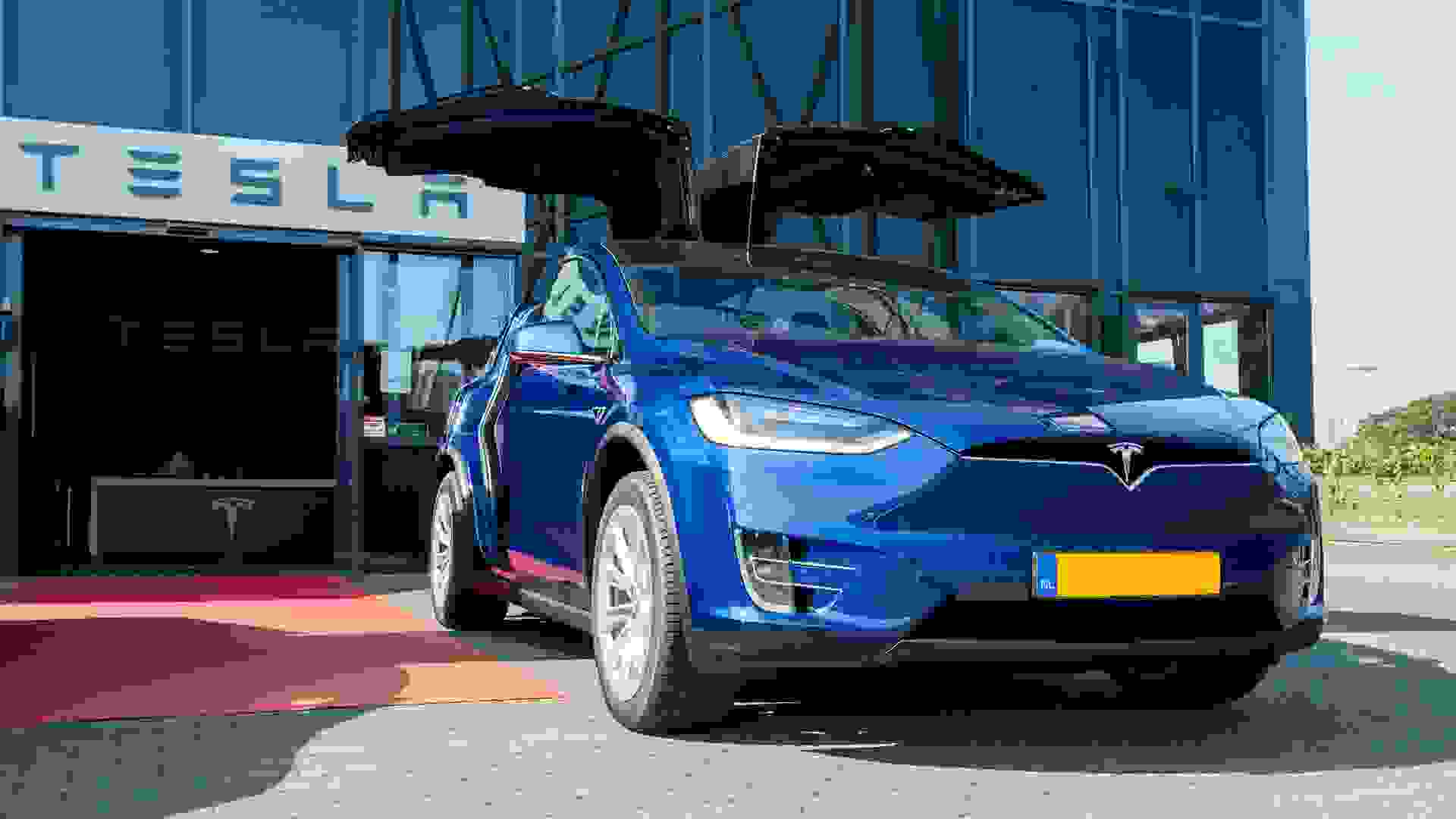How Much Does It Cost to Install an Electric Fireplace
Gov. Newsom Wants To Ban Gas Cars by 2035: The True Cost of Going Electric
Make sure you understand all the costs involved.

California Gov. Gavin Newsom announced on Sept. 23 that the Golden State will ban the sale of new gasoline-powered passenger cars and trucks in 15 years, the Associated Press reported. This mandate could force U.S. automakers to massively boost their zero-emission efforts, as California accounts for more than 1 out of every 10 new cars sold in the country.
"If you want to reduce asthma, if you want to mitigate the rise of sea level, if you want to mitigate a loss of ice sheets around the globe, then this is a policy for other states to follow," Newsom said, according to the AP.
California would be the first state to impose such a mandate and could propel the growth of the electric vehicle market forward. Although electric vehicles have grown in popularity in recent years, they still made up less than 1% of the 1 billion vehicles being driven as of late 2019, CNBC reported.
Read More: Industries That Have Suffered the Most in 2020
If you're debating whether to switch to an electric vehicle ahead of any mandates, you'll want a realistic picture of how much you can expect to pay beyond the sticker price. Here's a rundown of the costs involved so you can make the smartest decision when buying an electric car.
Last updated: Dec. 3, 2020

Popular Electric Vehicles
Tesla has been dominating the electric vehicle market as the maker of the top three most-sold EVs in America from January through June 2020, according to data from CleanTechnica. Over 38,000 Tesla Model 3s were sold over that time frame, making it the top seller, followed by the Tesla Model Y (18,861 sold), Tesla Model X (9,500 sold), Chevy Bolt (8,370 sold), Tesla Model S (4,700 sold), Nissan Leaf (3,006 sold), Audi e-tron (2,872 sold) and Porsche Taycan (1,038 sold).

Average Purchase Price
Consumers now have more options for electric vehicles with over 30 battery and plug-in hybrid offerings in the U.S., according to automobile expert Matt Teske. Unlike traditional vehicles where you can cover a lot of roadway on gas, electric vehicles run on battery, which ultimately drives cost and determines the miles you can drive, he said.
Sure, some of the most expensive cars are electric vehicles and can cost you six figures. For example, the midrange Porsche Taycan Turbo has an MSRP of $150,900. However, you can still find electric cars for around $30,000, such as the Nissan Leaf. And electric cars are quickly becoming more affordable. The average cost of electric vehicles was $55,600 in 2019, according to Cox Automotive. That's a 13.4% decrease in price from the previous year.

Auto Loan Rates
To get the best deal on your car, make sure your car loan rate is low. Although many factors can impact the rate for your electric car loan, Teske — who has both owned and leased an electric vehicle — said that "the process has been no different than buying a gas-powered vehicle."
There is one difference that could lower the cost to own an electric vehicle, however. Some banking institutions and credit unions offer special financing discounts and incentives for customers who choose fuel-efficient vehicles.
For example, U.S. Bank offers a Green Auto Rate Loan Discount, which reduces your U.S. Bank auto loan rate by a half-percentage point when you finance your car purchase. The vehicle can be new or used, just as long as it's an EPA-Certified SmartWay Vehicle — many of which are electric vehicles.

Fuel Costs
People hungry to get rid of their gas-guzzlers might forget that electricity can be more variable than gasoline. The cost to power an electric vehicle can depend on several factors, including current electric rates.
On average, however, it costs half as much to drive an electric vehicle when you compare fueling an electric vehicle to a gasoline-powered car, according to the U.S. Department of Energy. At Energy.gov, the eGallon tool compares the two by state, using average gas prices and residential electricity prices. There are states where you can power an EV for under a dollar. Arkansas happens to be one of them, according to the eGallon tool.
The average cost to operate an electric vehicle in the United States is $485 per year, a 2018 study by the University of Michigan found.

Charging Costs: At Stations
The cost to charge at a station varies, and some public stations even let you charge for free, Edmunds reported. There are also electric charging station chains, like Electrify America, that offer different charging rates depending on whether or not you are a member. The average charging per minute rate sans membership is $0.22, according to Car and Driver.
Take a Look: 15 Great Cars To Own for More Than 15 Years

Charging Costs: At Home
In most cases, charging at home is cheaper than public charging, according to Forth, a nonprofit that promotes electric mobility. Many homeowners purchase a home charging unit, which can vary in price. You can purchase one for under $1,000 from retailers such as Home Depot or Amazon.
Some energy providers also offer rebates. For example, Alliant Energy offers Wisconsin and Iowa customers up to a $500 rebate for purchasing and installing a Level 2 home charging station.

Maintenance Costs
Car maintenance for a gasoline-operated vehicle can be costly and a lot of work. Electric vehicles, on the other hand, are typically easier to keep running smoothly as they don't have all the moving parts that go with a gasoline engine. So, you might find that you can save money on car maintenance if you go with an electric vehicle.
With regular vehicles, you have oil changes and miscellaneous part replacements that go bad over time. With an electric vehicle, you'll never have to worry about replacing the timing belt or head gasket, as they do not need these components to operate, said Teske.
"One of the most interesting savings in maintenance costs with an electric vehicle is the brakes," he said. "An electric vehicle can use the electric motor to slow itself down, reducing the need to use a traditional brake pedal. This extends the life of the brake pads and rotors on an electric vehicle. A gas-powered car simply cannot do that." This process is known as regenerative braking.
Don't be mistaken, though — electric vehicles will require some maintenance costs that you're familiar with, such as fixing windshield wiper blades and tire rotation.
Overall, however, maintenance costs are typically low. On the higher end of estimates, a Tesla will cost about $298 a year to maintain, according to Motor 1. For comparison, the average annual maintenance costs for a BMW i8 add up to $979.

Insurance Costs
Electric vehicles can equal savings in many areas, but insurance might not be one of them. Depending on the insurance company and other factors — such as your driving history — your auto insurance rate could increase when you purchase an electric vehicle.
But Teske said he has not seen a difference in price to insure his Chevy Volt. In fact, he said safety features that some electric models have could make insurance cheaper in some instances. In the past, for example, the Tesla Model S has received some of the best safety ratings, "which some insurance companies reference when gauging a vehicle's safety and cost to insure," Teske said.
There's another factor to consider with auto insurance. According to Allstate, the installation of a vehicle charging station may alter your home insurance policy. For example, Oregon and California require some homeowners and condo owners to have liability coverage.

Tax Credits
The average purchase price for an electric vehicle is higher than the average cost for a gas-powered car, but you have to also factor in the tax credit you'll be eligible for, which brings the purchase price down. All-electric and plug-in hybrid cars purchased new may be eligible for a federal income tax credit of up to $7,500; the credit amount will vary based on the capacity of the battery used to power the vehicle, according to the U.S. Department of Energy. You may also be eligible for state and/or local incentives depending on where you live.
See: 2021 Cars and Trucks That Are Worth Saving Up for Next Year

Depreciation
Unfortunately, electric vehicles depreciate in value quicker than gas-powered vehicles, according to Car and Driver. This is due to their higher cost compared to comparable gas-powered cars.
"Dollar-wise, we do see a premium on top of a compatible ICE (Internal Combustion Engine) vehicle comparably equipped in age," Cari Crane, director of insights at ALG, told the publication. "It's just that price point that's really causing that steeper depreciation."

Trade-In Value
If you've ever sold an old car, you know that some have higher resale potential than others. The resale and trade-in value is still a bit murky for electric vehicles, as they are fairly new to the auto marketplace. But it's possible that some people might be reluctant to buy your electric vehicle because they don't want to replace a battery — which can be costly.
The battery for an electric vehicle does have a limited lifespan and could cost thousands of dollars, according to the Green Car Reports. Whether you're considering a new electric vehicle purchase or used, it would be a good idea to know the battery warranty and its stipulations before purchasing the vehicle.
Another deterrent, according to Autotrader, is the costly repair for collisions. Furthermore, new models entering the market with better features have made resale prices tumble, according to a 2015 Wall Street Journal report.
Before you buy an electric, do your research to see the potential resale value. For example, the 2020 Tesla Model X has the best resale value this year, according to Kelley Blue Book. Its predicted resale value after five years of ownership is 44%.

Sales of Electric Vehicles
According to an analysis by McKinsey, growth in electric vehicle sales has slowed in recent years. While electric vehicle sales rose 65% from 2017 to 2018, they only rose 9% from 2018 to 2019. Things have since taken a downturn — EV sales dropped by 25% during the first quarter of 2020. "The days of rapid expansion have ceased — or at least paused temporarily," the analysis states.

The Future of Electric Vehicles
About the Author
How Much Does It Cost to Install an Electric Fireplace
Source: https://www.gobankingrates.com/saving-money/car/true-cost-owning-electric-vehicle/